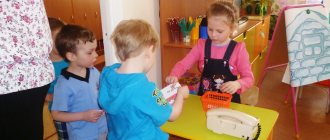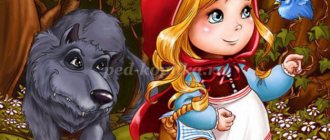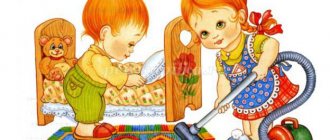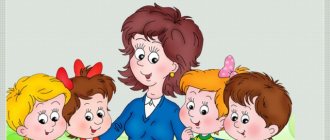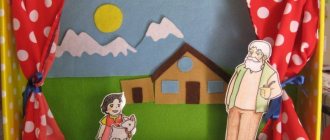Montessori Sensory Development Ideas at Home
Despite the fact that Montessori centers use specialized kits for the development of children, it is not difficult to create a game that enriches a child’s sensory experience.
- Animal competitions. Discuss with your child how different animals move and try to organize a competition: draw a start and finish line and ask them to run sideways like a crab, hobble like a bear, or jump like a hare.
- Modeling. Kinetic sand, salt dough, plasticine and clay perfectly develop a child's tactile sensitivity. You don’t have to try to create a masterpiece right away: just learn how to roll balls, flatten them into pancakes, stretch them into sausages, squeeze them and watch how the material seeps through your fingers
- Draw with crayons on the pavement and play hopscotch. Like the previous exercise, this trains not only the senses, but also the child’s coordination.
- Game of silence. Is it just not interesting to remain silent anymore? Invite your child to remember 5 different sounds that he heard during a minute of silence (car horn, bird sounds, people talking, a dropped pencil, etc.)
- Treasure hunt. Draw a list of objects that your child should find during your next walk (a long rough pine cone, a red leaf, a yellow leaf, a dry branch, etc.). Don't forget to take a pen with you to cross out what you find.
- Drawing with stamps, fingers, brushes and even cotton swabs. It is difficult to overestimate the impact of free creative activities on a child’s development.
- Guess the smell. Place items with different scents in opaque boxes: your favorite shampoo, orange peel, a little vanilla, dried cloves, fried cutlet. Organize a competition for the keenest sense of smell.
- Experiment with musical instruments: xylophone, glucophone, kalimba, drum, tambourine, shaker, pipe. It is not necessary to immediately enroll in a music school to introduce your child to music.
- Guess the product by taste. Blindfold your child and ask him to guess what's for lunch today.
- Let your child walk barefoot more often, because there is a whole world under his feet: sand, lawn, stream, pebbles.
conclusions
The development of a child begins with the development of his senses. In the 21st century, this is not just the opinion of teachers, but a scientifically proven fact. At an early age, it is very important for a child to learn as much as possible about the world around him using all his senses, which is why no computer can replace a child’s real experience of being in a different environment (forest, park, store, kitchen, etc.). Try to introduce your baby to a variety of objects, and think about how to organize a sensory development area for him, if the ideas of Maria Montessori are close to you.
